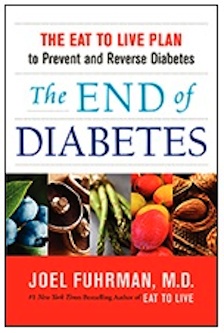How many times have you heard someone shriek, mutter, moan, yell, spit, murmur or plead, “Just get over it!”, usually followed by the less audible, “Will you?” The answer is, you won’t. The fact that you are displaying emotion through your words, facial expression, body language, tears or a big fat sign with four-letter words is THE POINT. What would make someone think that just telling you to get over it would fix it for you? Two things: One, the assumption that emotions are totally within one’s control and, two, that you just need to change your thinking and apply a little discipline to change your mood.
People fear feelings
This simplistic thinking is the equivalent of magical thinking. Just close your eyes and pretend what’s happening is not real and think happy thoughts so I won’t have to come up with the right words to make you feel better. So my telling you to straighten your face and look happy is really an expression of my fear of not being a good enough partner, parent, friend or sibling.
The effect of experience
Some people are very literal thinkers. If they feel things deeply, they don’t tell anyone, not even themselves. If they don’t feel things deeply, they don’t understand how you could. Literal people often don’t understand that what someone might express emotion about might really mask something totally different that they are upset about. Like people who cry at the movies when the hero dies. They might actually be thinking bout a pet’s death early in their childhood. And some people who have had many disappointments in their lives might react intensely to anything. Opening the container that holds their emotions might cause them all to spill out. One could imagine that for some people, each subsequent loss made it harder and harder for them to contain their sadness or anger.
It is often said that African Americans are likely to be more expressive of their emotions than whites, that Latinos are more expressive than European Americans, and the British more conservative in expression than Italians. In these instances we may be referring to cultural learning about what is acceptable expression of feelings.
Sensitive brains and OCD (Obsessive Compulsive Disorder)
Here’s another something to consider – the brains of some people, and their nervous systems ( which their brains are connected to, by the way) are extra sensitive. In the field of neurofeedback, you can look at the speed with which brain cells are firing in an EEG (electroencephalograph). Those people who have extra fast firing neurons in the front of the brain tend to get stuck on thoughts and feelings, sort of like your car tires spinning on ice. Such people can’t help themselves from getting carried away when they get upset. They will obsess over it until something or somebody gives them a push or a pull out of that rut that they are creating. Luckily, neurofeedback, also known as brain biofeedback, provides a non- intrusive, drug-free way to slow down the troublesome brain activity.
The power of positive thinking
So many people who have grown up in difficult situations have found help from positive thinking courses. It is the poor man’s form of self- treatment and it can be very useful if there is not a biochemical cause of mood disorders. Positive affirmations introduced years ago by folks like Norman Vincent Peale and reframed twenty years back by Iyanla Vanzant in her book, Acts of Faith, began a very successful trend of giving folks new roads out of despair. Mental health problems can come from physical disorders like diabetes or heart problems, hypertension, multiple sclerosis, dementia, lupus, etc. because in these disorders the chemistry and functioning of the organ systems are altered, thereby affecting the brain.
The power of CBT
So there are different ways of accessing mental health problems in order to find solutions to them. Solutions from the inside might include medications, diet change, detoxification or supplements. Solutions from the outside may include psychotherapy, group therapy, acupuncture, transcranial magnetic stimulation, neurofeedback, meditation, yoga, exercise and other treatments. For some problems, a combination of several of these may be just the ticket. While the current medical treatment in America emphasizes drugs above psychotherapy, the rule of thumb over the last twenty years has always been psychotherapy first and medication second if there was no risk of harm to life and limb or safety. In more recent years drugs have dominated nearly every area of medical treatment such that people assume there is nothing else. In other countries, where the success of medical care for everyday health issues is more successful than in the United States, alternative, non drug therapies are a matter of course.
One of the most effective, short term therapies, is Cognitive Behavior Therapy (CBT). In talk sessions, one’s specific thoughts underlying your feelings and behavior are examined. Those that are logical and are working for you are reinforced. Those thoughts that are mythical, incorrect or left over from some previous bad experience are corrected and replaced with more helpful thoughts. It has been proven that CBT and other forms of talk therapy actually change the brain and provide long lasting improvement for most people.
It is important to ask your provider, what is the safest, least intrusive way to solve your problem and is this an area in which they specialize. There are many people with depression who have been on medication for years and yet have never been evaluated by a therapist – an expert in mental health needs. A general antidepressant is often given out by gynecologists and family practitioners based on your answers to a checklist of questions. This can be helpful where there are no trained mental health providers but in most populated areas there are many and in rural areas telephone or Skype therapy is possible.
Since antidepressants don’t cure depression or rid you of its’ cause, once you stop taking them you may be right where you started or the real cause of your depression may have disappeared for unrelated reasons. A responsible and comprehensive approach would include having a full medical work up to eliminate physical sources of problems, for which depression or anxiety might be the first symptoms. In the meantime, one can begin therapy and learn how to use insight to identify choices and learn techniques to change their behaviors and feelings. They can’t just be told to “Get over it”.
Mental health or behavior problems aren’t just a matter of choice.




